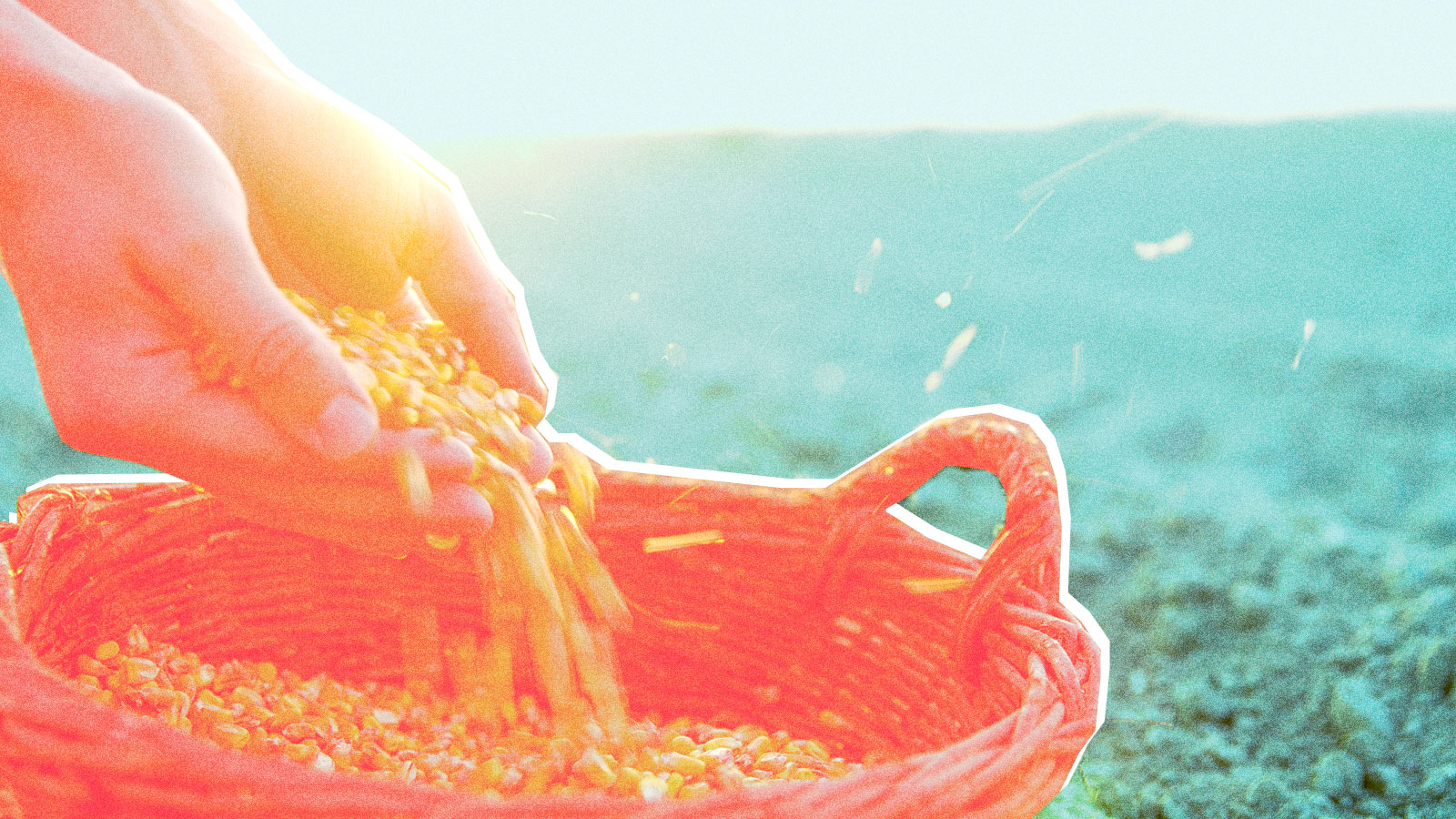On a chilly February morning in 2018, the New Mexico State Capitol in Santa Fe bustled with activity as constituents from across the state gathered to testify about an obscure bill. In January, House Bill 161 had been quietly introduced by a pair of Republican legislators, seeking to make it illegal for counties or local municipalities to adopt their own rules on—of all things—seeds.
News of the seed preemption bill rippled quickly through New Mexico’s agricultural and Indigenous communities. At the hearing, agribusiness lobbyists came out in support of the bill, as did a handful of large farm organizations, including the New Mexico Chile Growers Association, the New Mexico Farm and Livestock Bureau, and the Dairy Producers of New Mexico. Proponents of the bill cited the confusing and burdensome nature of “patchwork” regulations between counties and argued for regulatory consistency throughout the state. Such consistency, they contended, would make New Mexico a friendlier location for farmers and agribusiness, spurring economic growth for the entire state.
But the hearing room was overwhelmingly filled with the opposition, with more than 100 small-scale farmers, seedkeepers, and tribal members coming out against HB 161. One by one, they asserted that the bill threatened their ability to preserve the foods and seed relatives passed down from previous generations—a tradition integral to their way of life.
“These seeds are our children, and the last time the rights to parent our children were taken from us, we endured five generations of genocidal boarding schools — harm we are still healing from to this day,” testified Beata Tsosie-Peña, a seedkeeper who spoke in opposition to HB 161. Her voice was urgent and emotional. “These seeds are our children, and we will share them with you, freely. We will feed you with their abundance. All we ask is for the sacred trust as caretakers and stewards to be honored and respected.”
From her backyard in the Tewa village of Santa Clara Pueblo in northern New Mexico, Beata Tsosie-Peña can watch the sun come up over the Madre Tierras and see the trees in the bosque marking the flow of the Rio Grande. Tsosie-Peña grew up farming and says her relationship with her seed relatives began at a young age. For the Tewa people — a linguistic group nested within the Pueblo Indigenous tradition — this relationship is a spiritual foundation, central to every part of Tewa culture, from ceremony to cosmology, medicine, clothing, and song.
But this land, like much of the Indigenous land across the Southwest, has also been made into what Tsosie-Peña calls a “sacrifice zone” by repeated colonization. Just twenty miles from her community, she says a nuclear weapons facility conducts “high explosive testing and detonation and disposal on an almost daily basis, rumbling through our landscape.” As a Tewa woman, Tsosie-Peña says it hurts to see such violence inflicted upon her ancestral lands. “We’re a land-based people … The land is us. What happens to one happens to the other.”
New Mexico seedkeepers like Tsosie-Peña say the very concept of seed preemption is particularly damaging and offensive to the 23 tribes (10.5 percent of New Mexico’s population), many of whom still practice traditional and subsistence agriculture. In her work with Tewa Women United (TWU), a Native women-led group, Tsosie-Peña organizes around an array of environmental issues in her community, including opposing the nuclear weapons facility, building community gardens, and advocating for tribal seed sovereignty.
“Food, for us, comes from our relatives, whether they have wings or fins or roots,” said Winona LaDuke, environmental activist and Ojibwe tribal member, in a 2011 TEDx talk in Minnesota. The genetic modification and patenting of seeds, she said, was putting those relatives at risk. “I don’t know how to quantify the culture of grief associated with loss of your most ancient varieties.”
Paula Garcia first remembers learning about the concept of seed preemption in 2006, when LaDuke gave a series of presentations in New Mexico. Garcia raises corn and cattle in an arid stretch of the northern part of the state that her family has farmed for generations. “No farmer in their right mind would want to farm here. It’s clay,” she laughs. “But my seed grows here, and I know what it can do. We have seeds that work for this place.” Garcia says these seeds need to be protected, especially from cross-contamination of genetically modified seeds.
Garcia and other New Mexico seedkeepers have been keeping a close eye on the state’s proposed legislation for years. Warned by Indigenous seed sovereignty activists across they country, they knew to scour state bills for anything having to do with seeds, but especially for language around state preemption — a legislative strategy in which a state prevents local governments from enacting their own regulations around a particular issue. They watched state after state quietly pass seed preemption laws — all with similar boiler plate language, all disallowing local municipalities to enact their own seed regulations and ceding such power entirely to the state.
“I was raised with a lot of reverence for the act of growing food and for seedsaving,” Garcia says. That reverence was modeled most profoundly by her grandfather, who — until his death at the age of 96 — would monitor the soil moisture, the amount of winter snow, and the phases of the moon until the conditions were perfect for planting.
Today Garcia, like many residents of Mora County, still practices subsistence agriculture, raising livestock and growing traditional crops for her family. “It still feels very pastoral,” Garcia says. Open fields stretch to the mountains, tractors sputter down the road, and cows are regularly herded across the highway.
The seeds passed down from Garcia’s grandfather, and from his grandparents before that, are of course emotional links to her family. There are other reasons to save seeds, since they have adapted over many generations to thrive in the unique environmental conditions of a specific place. In the arid Southwest, the availability of seeds that can withstand drought conditions is particularly important.
If Garcia’s seeds were to be cross pollinated with other seeds developed with what she considers the “unproven technology” of genetic modification, she says her seeds would be changed, and potentially less viable or resilient. “It’s like messing with creation at a fundamental level,” Garcia says. “What would be lost is that gift from our ancestors. It would be the loss of a relative.” Thus, she says the seeds must be protected at all costs.
As the director of the New Mexico Acequia Association (NMAA), Garcia also advocates on behalf of the state’s acequias — the community-managed, gravity-fed irrigation ditches that have delivered water to small farmers across New Mexico’s arid landscape for more than 300 years. The acequia tradition was brought to the desert Southwest by 16th-century Spanish settlers, though the concept originated in the Middle East.
Acequia members work together to manage and share what is arguably the most valuable resource in this region: water. Each spring, members work together to clean and weed the ditches, in order to ensure equitable water flow to each member. The acequias are fundamentally democratic in their structure, built around community, collaboration, and traditional agriculture practices.
Seedsaving is fundamental to this type of agriculture. So in 2006, the Acequia Association became a founding member of the New Mexico Food and Seed Sovereignty Alliance, created for the purposes of “protecting native seeds from contamination from cross pollination from genetically engineered seeds or GMOs, genetically modified organisms.” The Alliance developed a 30-point seed sovereignty declaration and hosts an annual seed blessing and exchange called Ówînegh Táh. Open to the public, the day-long gathering honors the relationships between people, seeds, and the land.
Twelve years after Ówînegh Táh began, those relationships have been critical in the fight to protect native seeds.
When New Mexico House Bill 161 dropped in January of 2018, Garcia realized it was the seed preemption bill she’d long been warned about. If passed, it would prevent any future local legislative efforts to restrict GMOs or pesticides — as have been implemented in places across the United States, including Jackson County, Oregon and Mendocino County, California.
Seed preemption bills have been passed in at least 29 states, with most of those bills drawing from language crafted by the American Legislative Exchange Council (ALEC) — a group that describes itself as “America’s largest nonpartisan, voluntary membership organization of state legislators dedicated to the principles of limited government, free markets, and federalism.”
But the Center for Media and Democracy describes ALEC as a “corporate bill mill,” whereby corporations pay to develop model legislation, which is then introduced as actual bills by conservative lawmakers in state legislatures across the country. The ALEC bill pipeline has resulted in a spate of conservative and corporate-friendly legislation that runs the gamut: protections for private prisons, anti-immigrant surveillance, public protest restrictions, and “stand your ground” gun laws.
In the case of seed preemption, state bills have been pushed by ALEC member agribusiness corporations, such as Bayer (which recently acquired Monsanto for $66 billion) and Dupont, in an attempt to get ahead of local efforts to ban GMO seeds. As the producers of these seeds and the chemicals used to grow them, these corporations obviously have a vested interest in having the laws on their side.
At the February 2018 hearing, Paula Garcia stood inside the wood-paneled committee room and held up two ears of her family’s corn, passed down from her great-grandparents, and spoke in support of the seeds. So did Indigenous grandmothers and grandfathers, seedkeepers, nurses, tribal leaders, Black and Latino farmers, environmental organizations, organic and young farmers.
When Tsosie-Peña spoke, she told a Tewa story. “About 10,000 years ago, our ancestors made an evolutionary covenant with the ancestor of our corn mothers. In exchange for giving up our nomadic ways, this seed ancestor also gave up her wildness. And together we co-evolved so that our survival became entwined.” She paused. “There is a spiritual, physical, and emotional bond — a promise that we are still upholding throughout Tewa lands and beyond … We were never meant to regulate and control seeds, but to be in relation with each other.”
After all of the testimony was heard, the nine members of the State Government, Indian and Veterans’ Affairs Committee moved to vote. Since more than half of U.S. states already have seed preemption bills on the books, there was plenty of precedent in its favor. But the pushback from local groups proved strong enough to sway the legislators.
The committee voted 5-4 to table the bill, preventing any forward movement. Relief among the opponents in the audience was audible.
Today the seedkeepers’ vigilance continues — and for good reason. The following year, buried in the 200-page 2019 state budget, a single line aimed to strip local governments of their power to regulate seeds. Again, the seedkeepers mobilized. After New Mexico Governor Michelle Lujan Grisham received hundreds of calls and petition signatures, she struck the line from the bill.
This past March in Mora County, just as the coronavirus pandemic was spreading across the United States, the deacon from Paula Garcia’s church came to visit with her. They chatted at a safe distance, and then she sent him off with two pounds of blue corn seed. In exchange, he offered to let her borrow his walk-behind tractor to make some new garden beds.
This is what Garcia loves so much about her community, she says — the continued respectful relationship between people, land, and seeds. She intends to keep fighting for that.
Marguerite Casey Foundation nurtures a movement of low-income families advocating on their own behalf for change. The Foundation supports families strengthening their voice and mobilizing their communities to achieve a more just and equitable society for all.




